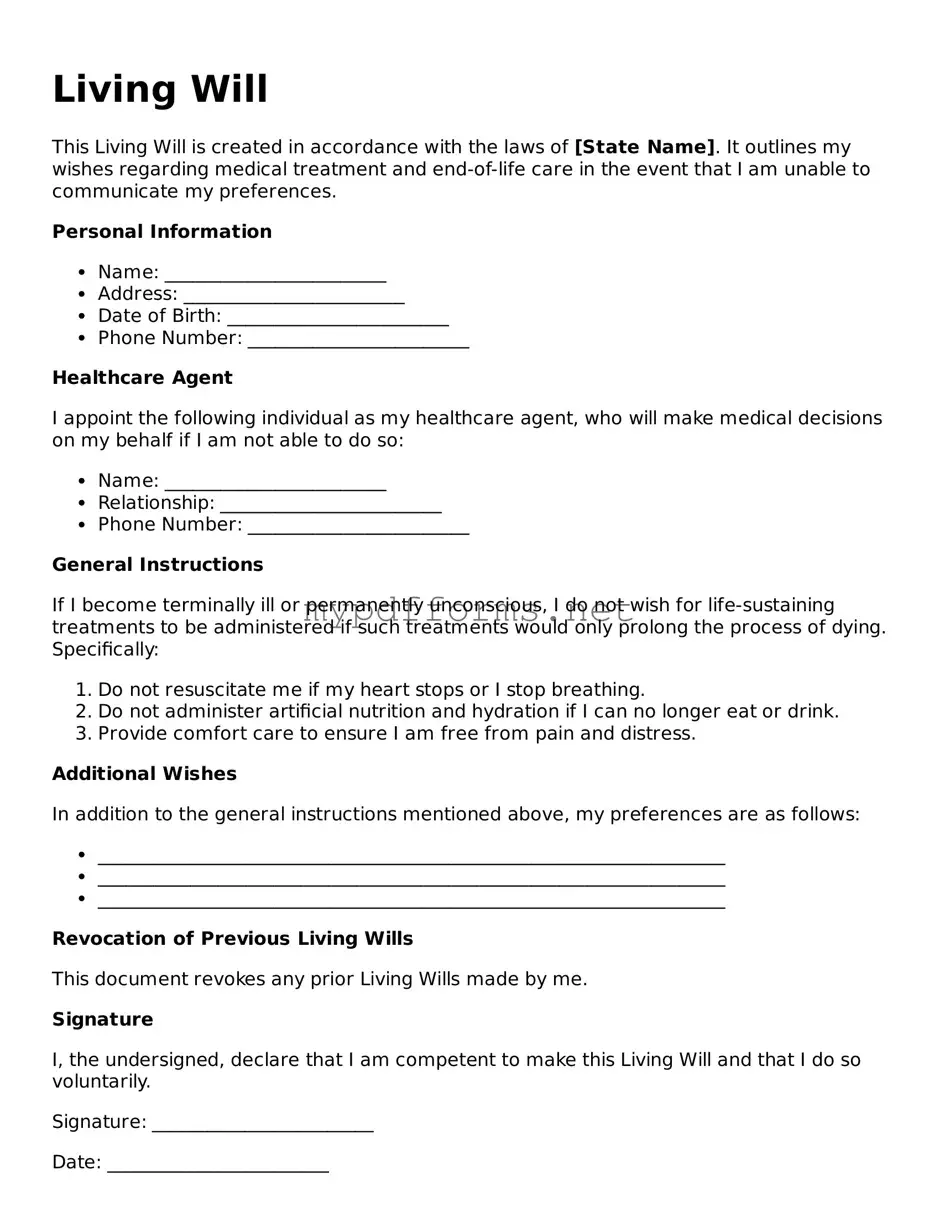Living Will Template
A Living Will is a legal document that outlines your preferences for medical treatment in the event that you become unable to communicate your wishes. This important form helps ensure that your healthcare aligns with your values and desires, providing peace of mind for both you and your loved ones. Consider taking the time to fill out your Living Will by clicking the button below.
Modify Document Here

Living Will Template
Modify Document Here

Modify Document Here
or
⇓ PDF
Need to check this off quickly?
Edit and complete Living Will online in just a few steps.